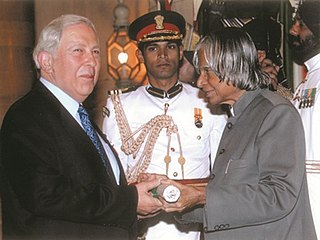A Quote by Yusuf Hamied
If you look at the world's top 50 drugs being sold today, they are being marketed and sold by companies that did not invent them. I respect patents. I'll pay a royalty. But I shouldn't be denied the right to produce drugs for poor people at reasonable prices.
Related Quotes
Most drugs sold in the U.S. are produced outside of the country, and if we can ensure supply-chain safety for these drugs, introducing more of them to the market quicker could mean major differences in the price of drugs, quality of life for patients, and for some Americans the difference between life and death.
For a decade, makers of AIDS medicines had rejected the idea of lowering prices in poor countries for fear of eroding profits in rich ones. The position required a balancing act, because the companies had to deflect attacks on the global reach of their patents, which granted exclusive marketing rights for antiretroviral drugs.
I simply don't like the culture of drugs. I never liked the hippies for it. I think it was a mistake to be all the time stoned and on weed. It didn't look right and it doesn't look right today either and the damage drugs have done to civilizations are too enormous. And besides, I don't need any drug to step out of myself. I don't want them and I do not need them.
Drug companies spend more on advertising and marketing than on research, more on research on lifestyle drugs than on life saving drugs, and almost nothing on diseases that affect developing countries only. This is not surprising. Poor people cannot afford drugs, and drug companies make investments that yield the highest returns.
The same drugs are way cheaper in Germany than in America because, obviously, if all sickness funds negotiate with the drug companies for a single price, then the market power of the sickness funds is fully used. So therefore you would expect the prices to be lower for the drugs in Germany, and this is exactly what you see, at least for non-generic drugs.
We pay so much more for the same pill, prescription drugs than other countries. You go to Canada - people go to Canada to buy prescriptions. So we're subsidizing the world in terms of prescription drugs. It's ridiculous. And it's going to stop. The problem I have is these companies give so much - I mean the contributions are massive, just massive, the amount. But we do have - there are a lot of good people that are seeing what's going on. And I think we'll be successful in that. Next week, I'm going to declaring an emergency, national emergency on drugs.





































